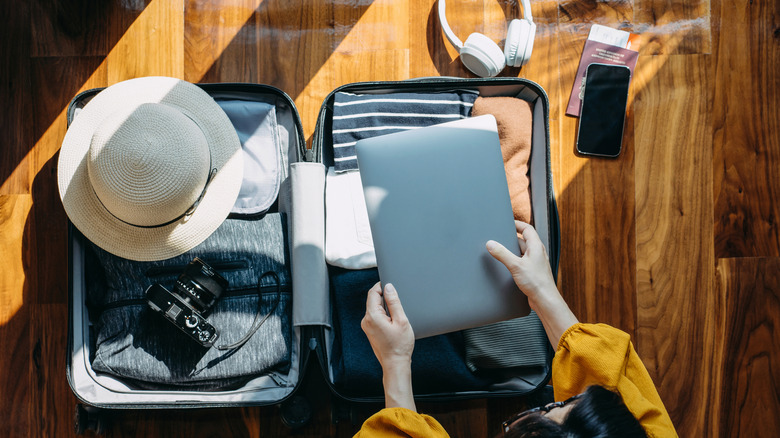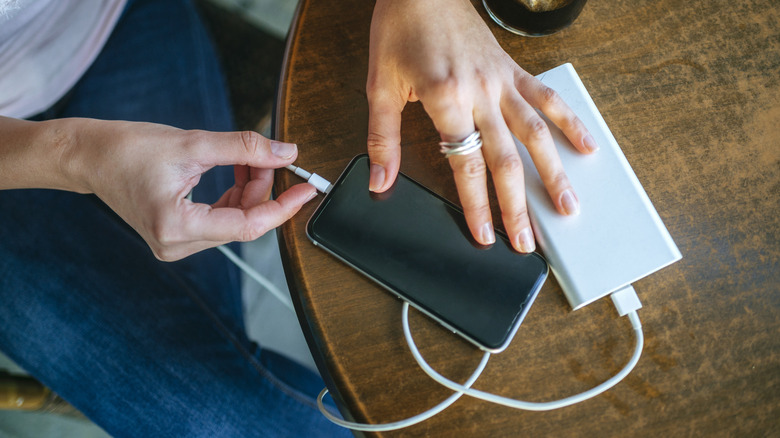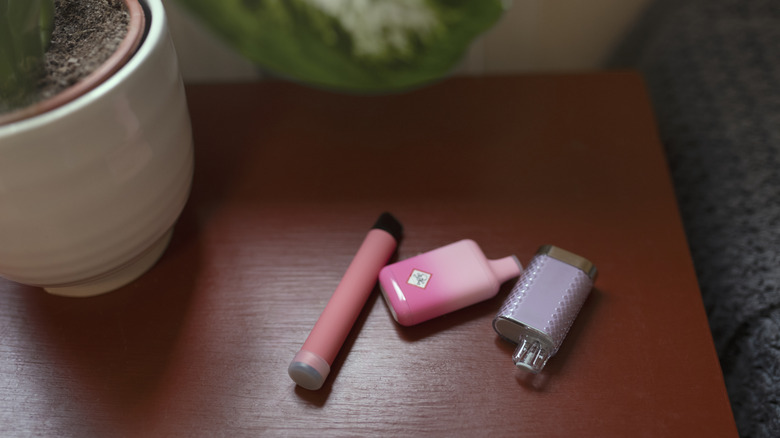Whenever you travel, whether it’s for business or pleasure, it’s likely that you’ll want to bring some of your favorite electronics along for the ride. After all, your smartphone keeps you connected, your laptop lets you work or stream shows, and devices like cameras, tablets, and e-readers can provide lots to do during long flights (or, worse, travel delays that can impact your mental health in unexpected ways). In the end, all of these gadgets and accessories help you stay productive, connected, and entertained while you’re miles away from home.
However, before you go ahead and pack all your electronic devices into your checked suitcase to help lighten your load while finding out how to navigate a busy airport, it’s important to understand that the TSA has several important safety restrictions regarding these items. Specifically, there are some electronics that can go in your checked luggage and ones that must stay with you in the cabin.
So, what separates these devices? Put simply, these regulations exist primarily because of the lithium batteries present in most modern electronics. Under certain circumstances (for example, if the pressure changes or there’s damage to them), these batteries can overheat, catch fire, or even explode. And, since flight crews can’t access or monitor the cargo hold during flight, any battery-related incidents could easily go undetected until they become dangerous. As a result, the Federal Aviation Administration (FAA) requires all passengers to keep many battery-powered devices safely stored in their carry-on baggage where crew members can quickly respond if a device shows signs of overheating.
The ins and outs of traveling with lithium batteries
Other electronics you shouldn’t pack in checked luggage
Beyond uninstalled batteries, you should also try to keep everyday devices like smartphones, tablets, laptops, and portable gaming consoles in your carry-on luggage. Although these items aren’t technically prohibited in checked bags, safety experts strongly recommend carrying them with you for extra precaution. Remember the Samsung Galaxy Note 7 recall in 2016? You wouldn’t want that to happen in mid-air.
Additionally, electronic cigarettes and vapes also fall under the FAA’s regulations. These items must always travel in your carry-on baggage, and you must take extra steps to prevent them from accidentally activating mid-flight. This means removing any batteries (when possible) or using protective covers over activation buttons.
Finally, it’s worth noting that, while most portable electronics should stay with you, home gaming consoles without internal batteries (like PlayStation or Xbox systems that run on AC power) can technically be packed in checked luggage. However, considering the value of these items and the possibility of luggage loss or theft (especially with some travelers claiming TSA is stealing their things), you might still prefer to keep these expensive devices with you when possible.




